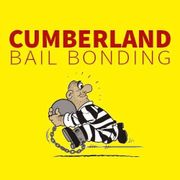What Can You Use as Collateral for Bail Bonds?

If your loved one gets stuck behind bars, there are several reasons to ensure their prompt release. For example, posting bail right away will prevent them from missing work. It will also provide the opportunity to start building a strong defense with help from a strategic attorney. If you don't have enough cash on hand to post the total amount, though, you’ll have to take out a bail bond. In many cases, that means putting up some form of collateral. Here’s a closer look at what is most often used.
3 Common Forms of Collateral for a Bail Bond
1. Real Estate
You should not put up your home as collateral unless you’re certain the defendant will make all scheduled court appearances. The primary purpose of collateral is to protect the agency’s bottom line if the defendant skips bail, so if your loved one fails to appear, the agency that supplied the bond would be on the hook for the total bail amount. If this happens, they would simply liquidate the asset you listed as collateral.
Furthermore, not all homes and real estate investments are available as collateral. You can’t put up a property unless you’ve acquired enough equity in it to cover the total bail amount.
2. Motor Vehicles
 If you own a car, truck, or SUV outright, you may be able to use it as collateral. Because you’ll only have to forfeit the vehicle if the defendant fails to appear in court, though, you may continue driving it over the course of the proceedings. Other valuable vehicles, including RVs, motorcycles, boats, ATVs, and snowmobiles may also be used as collateral in certain scenarios.
If you own a car, truck, or SUV outright, you may be able to use it as collateral. Because you’ll only have to forfeit the vehicle if the defendant fails to appear in court, though, you may continue driving it over the course of the proceedings. Other valuable vehicles, including RVs, motorcycles, boats, ATVs, and snowmobiles may also be used as collateral in certain scenarios.
3. Valuable Items
Jewelry, precious metals, musical instruments, artwork, and antiques are just a few examples of valuable items that can be used as collateral for bail bonds. Just be prepared to provide proof of the actual cash value of any such property. You may be able to do so with the original bill of sale or with documentation from a reputable appraiser.
If someone you love ends up on the wrong side of the law, turn to Cumberland Bail Bonding for help. Working with 29 county jails across east Tennessee, this family-owned agency has been in business since 1992. When you turn to their licensed and bonded agents for guidance, you can count on their professionalism, respect, and discretion. To connect with a bail bond agent on their team, reach out on their website or call their Cleveland office at (423) 622-3733.
About the Business
Have a question? Ask the experts!
Send your question

